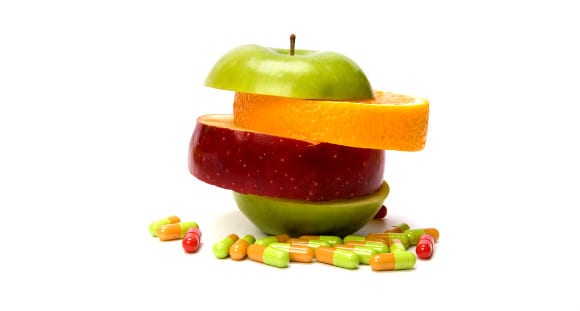
Vitamin C is a naturally occurring compound inside the human body. It is also known as ascorbic acid and is deeply involved with several important functions of the human body. Vitamin and minerals are essential for the body. The modern day lifestyle has led most us to become deficient in this very crucial vitamin and this is why we should consider consuming it in supplementation form. In this article, we explore the role and benefits of vitamin C for the human body and why it is so important for your overall health and wellbeing.

Role of vitamin C in human body
The role of vitamin C in the human body is crucial. It is involved in various internal processes that are determinants of good overall physical health and well-being.
The adrenal glands are one of the many glands found inside the human body and they are deeply involved in the production of important body hormones such as cortisol and adrenaline. Vitamin C facilitates the optimal functioning of the adrenal glands.
It helps to promote the growth, development, and repair of the body muscles. It is also involved in promoting the gum health by making the gums stronger and firmer.
Vitamin C plays a crucial role by cleansing the internal system and eliminating all toxins from the body.
It plays a vital role in curing and healing burns, wounds, and bruises by promoting the formation of collagen.
As far as the internal health is concerned, vitamin C is famously known for strengthening the immune system of the body. This encourages your body to fight diseases and battle illness.
It is a great antioxidant that boosts the flow of oxygen to the skin and makes the skin glow and shine. Vitamin C for skin has been popular for many decades now.

Food sources of vitamin C
You can, fortunately, find a lot of vitamin C from many food sources – which makes it possible for you to fulfil your body's needs with a proper healthy diet:
Strawberries:
Strawberries are known to be a wonderful anti-oxidant food and this makes it rich in vitamin C as well. So are you enjoying the strawberry smoothies and shakes? It is time to jam pack some more berries into your morning shake!
Guava:
This may be a surprise for many people because guava is not known to be a vitamin C rich food but it in fact is. One guava is estimated to have around 250mg of vitamin C in addition to many other essential nutrients like folic acid, potassium, and manganese.
Citrus fruits:
All citrus fruits including oranges, fruiters, lime, lemon, and grapefruit are jam-packed with vitamin C. So from the citrus family, you can get loads of vitamin C.
Papaya:
We all know papaya is full of vitamin A but did you know that it comes with a lot of vitamin C too? In fact, one whole papaya is enough to fulfil your one-day complete vitamin C dietary needs.
Kiwi Fruit:
Kiwi fruit is rich in vitamin C and the tiny little black seeds in the fruit boost the production of serotonin hormone inside the body. This improves your sleep cycle.
Broccoli:
One broccoli means you can get 90g of vitamin C from it. So whether you eat it raw or cooked – you are definitely doing the right thing and let’s not forget about how wonderful it tastes.
Herbs:
Little is known that even the everyday kitchen herbs that are used also have vitamin C in them. These are ordinary herbs that are regularly used in cooking our lunch or dinner meals including thyme, basil, and parsley.

Vitamin C benefits
There are countless benefits of vitamin C. So let's jump into the benefits that the regular consumption of vitamin C brings to the human body.
Treating cold:
If you have a cold, get working on the vitamin C you are consuming. Vitamin C is the one thing that will fight your cold and flu and prevent it from happening in the first place.
Boost serotonin production:
Vitamin C directly impacts the adrenal glands. Therefore, it boosts the production of the serotonin hormone inside the body. This works to improve your sleep cycle, keeps your mood better and also improves your sexual performance in bed by boosting the libido. All the good reasons to start jam-packing on vitamin C sooner than later.
Facilitates calcium absorption:
Iron and calcium are very important components that are needed by the body to function optimally. The good news is that vitamin C is not a selfish compound at all and likes to work as a team. Therefore, in addition to playing its own important roles in your body – it will also always be concerned about whether the other minerals are doing their job right. This is why it boosts calcium and iron absorption in the body.
Prevents scurvy:
Scurvy is a very unpleasant disease in which your gums become weak, start to bleed constantly and your skin also suffers. People suffer from a condition called skin haemorrhoids and it is equally unpleasant, ugly and of course painful. Vitamin C is 100% effective to prevent scurvy.
How much vitamin C you need on daily basis?
There is definitely an average amount of this particular vitamin that your body needs to have to function optimally on daily basis. The average dose that is recommended for individuals to intake is 200 to 500mg. This is an average dose only and can vary from one person to another, depending on many factors like age, gender, and medical history.
Moreover, the dosage should always be divided into two or three doses per day. Most commonly you get vitamin C in water-soluble tablets – which makes it easier to digest, absorb by the body and also an excess amount of it will pass out of the body very quickly too.

What happens when your body becomes vitamin C deficient?
Vitamin C deficiency is commonly reported by people. Excessive smoking, malnutrition, drug abuse and heavy alcohol drinking can lead to the body become vitamin C deficit. The outcomes of lack of vitamin C in the body are not too kind as well. Some of the things that are most likely to happen when the body becomes deprived of this essential compound include:
Slower healing of bruises and scars.
Weaker teeth and gums leading to frequent bleeding.
Dry and rough hair.
Nose bleeding.
Frequent sickness due to the inability of body to battle illness.
Scurvy is a common disease to lack of it.









